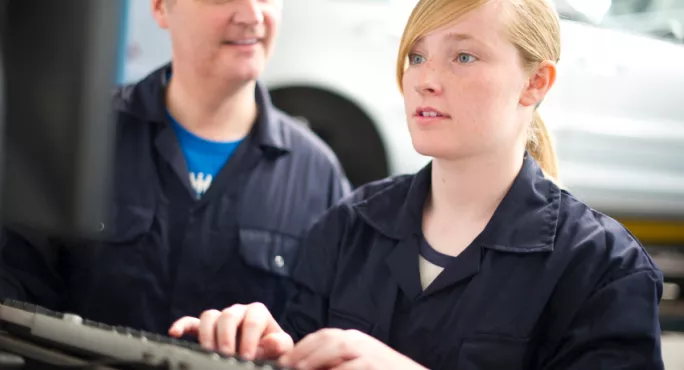After the education secretary, Damian Hinds, rejected a call by the Department for Education's permanent secretary to delay the implementation of T levels, it looks like its full steam ahead for the first learners to start courses in 2020.
Here is what we know so far about the shape and scope of the new T levels.
1) Course content
T levels will provide a mixture of:
- Technical knowledge and practical skills specific to their chosen industry or occupation:
- A work placement of at least 45 days in a chosen industry or occupation:
- Relevant maths, English and digital skills;
- Common workplace skills.
2) Subject areas
T levels will be available in the following areas: digital; construction; education and childcare; engineering and manufacturing; health and science; legal, finance and accounting; hair and beauty; agriculture, environment and animal care; business and administration; catering and hospitality; and creative and design.
Four other routes will be delivered through apprenticeships only: protective services; transport and logistics; sales, marketing and procurement; and social care.
3) When will they start?
T levels are set to be phased in starting from the 2020-21 academic year with a small number of providers.
The very first T-level subjects will be taught from September 2020 in more than 50 colleges and other education and training providers, so children starting Year 10 in September will be the first to be able to study them.
The first subjects that can be studied in 2020 will be digital, construction, and education and childcare.
4) Progression from T levels
When learners complete a T level, they will be able to choose between moving into: a skilled occupation; higher or degree level apprenticeships; or higher level technical study, including higher education.
5) Funding for T levels
The DfE has committed additional funding specifically for T levels – rising to an extra £500 million per year.
The additional funding recognises that T levels will give students more learning time than many current technical education options – in some cases an increase of 50 per cent.
6) How long will courses last?
The total delivery time is expected to be around 1,800 hours over two years – including the work placement of at least 45 days. The DfE said this is a significant increase over most current technical education programmes.
7) What will the courses involve?
T-level programmes will include three mandatory elements:
- Core underpinning theories, concepts and workplace skills, tailored for their chosen industry or occupation;
- Occupationally specialist skills;
- an industry placement with an employer, which will last for at least 45 working days.
The "core" will be split into two parts: One part will develop "underpinning" technical knowledge and skills relevant to all occupations relevant to the T-level’s industry. The other part is an employer-set project which will require students to apply their core knowledge and skills to achieve an employer-set challenge or brief.
Dependent on the T-level course they select, students may study one or two occupational specialisms.
8) How will the compulsory industrial placements work?
T levels must contain a “meaningful industry placement with an employer”. These will last a minimum of 45 working days, but can last up to 60 working days.
The DfE is currently piloting different ways of carrying out T-level placements and will confirm how they should be delivered when the trials have been completed.
9) How will T levels be graded?
Students will be required to achieve all the required components of a T level to get an overall pass grade listed on their T-level certificate.
10) What will happen to students not ready to start a T level at 16?
The DfE plans to offer a "transition" to help students get to the standard required to start a T level, as it “recognises that not all students who wish to start a T level will be ready to do so at age 16”.





